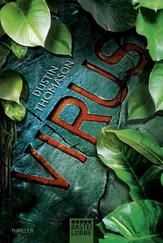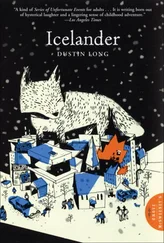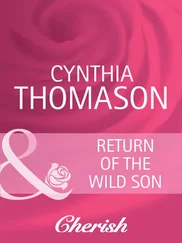“Are we expecting to see macaws?” Stanton called above the roar of the engine.
“Only in the migration season,” she told him, adjusting her eye shield. “The village is a point on the migratory path, and in the fall there are thousands, but by now they’ve moved on.” She continued her search for the cypress-covered hills that would signal they were near the village landing strip. Before they could find Kanuataba, they had to find Kiaqix.
“Hold on!” Uranam yelled out.
Every time they made the transition from the mountains to the valleys and back again, the plane bucked up and down, and just then the port-side wing caught a current and was kicked upward, jostling the entire aircraft. For a minute it felt as if the plane might snap in two.
When it righted itself, Chel saw the ground below. They flew over alternating patches of thick forest and cleared farmlands, where North Americans’ appetite for corn and beef had stripped the earth.
A minute later, she saw the massive cypress-covered mountain abutting the valley. Here, fifty generations of her ancestors had lived, worshipped, and raised families. She pointed Stanton toward the valley her father had given his life for. Beya Kiaqix .
“There.”
* * *
THE RAINY SEASON HAD made the earth soft, but there were half a dozen mahogany and cedar trunks and large branches blown over in the path of Kiaqix’s landing strip. The plane’s wheels barely cleared them. Final slivers of daylight were leaving the forest, making the landing even more treacherous. It looked as if no one had landed here in months.
On her last trip to Kiaqix, hundreds of villagers came to the airstrip to herald the return of Alvar Manu’s daughter, the great scholar. There’d been a dozen round-faced children holding incense and candles. Now she had to remind herself that today no one knew they were coming.
The plane rolled to a stop.
Uranam hurriedly jumped out and threw open the cargo doors at the back. The crushing heat of the jungle poured in immediately.
They put the biohazard suits, tents, prion samples, metal cages, test tubes, and other glass into the jeep, lowered the lift, and Stanton drove into the mud. When they were ready to make the five-mile drive to Kiaqix proper, Chel rolled down the window to let in some air.
“You’ll be here?” she confirmed with Uranam. “We’ll be back in twenty-four hours.”
Fear crawled across the pilot’s face. “No,” he said, backing toward the plane. “I’m not staying.”
“He agreed to stay,” Stanton said after Chel translated. “He has to.”
“I don’t know what this is about,” Uranam said. “But I don’t want to find out.”
He pointed above the forest. Chel turned to see thick wisps of smoke trailing into the sky, almost as if there was a factory deep in the jungle.
“They’re just clearing for next year’s harvest,” Chel explained, first to Uranam, then to Stanton. “That’s all it is.”
Uranam looked like a man with his mind made up as he climbed back into the cockpit. “No. This is something else,” he said, eyes fixed on the smoke. “From the gods.”
Within a minute, he was firing up the engine.
After the plane took off into the night, Stanton tried to reassure Chel. When they found what they’d come for, he insisted, he would find a way to get someone to pick them up.
But Chel knew it would be impossible to get another plane back in here anytime soon, and she was afraid that, if the weather turned, they might not be able to get out for weeks. Then she turned to look again at the black trails of smoke, and fear gripped her throat. Whatever superstitions drove the pilot away, he was right about one thing: No one would be burning fields this late in the rainy season.
* * *
SO THEY STARTED DOWN the road to Kiaqix with no idea of how they’d ever get back. The jeep had a full tank of gas, but Chel knew there had to be a hundred miles at least between them and the nearest Esso station. And, in this part of the Petén, roads were mostly just lines on the map, as hillside erosion and mudslides rendered them impassable for much of the year.
The plan was to stay for the night in Kiaqix and set out again at dawn into the jungle in the opposite direction of Lake Izabal, recreating the path that the Original Trio had taken here but in reverse. The five-mile path from the airstrip was so rutted that Stanton could barely get the jeep out of first gear. A light rain fell. Though they drove over cleared land, the sounds of the jungle were always near: the shrill calls of the keel-billed toucans, the monkeys making their wolflike cries.
Even as they drove through the darkness, Stanton tried to make out what little plant life he could identify around them for any sign of whatever might have protected the king and his men from the disease. On the way down he’d studied the flora that grew in this tropical forest, and he recognized a few trees by their shapes in the headlights: Spanish cedars with their coupled leaflets that looked like outstretched arms, vanilla vines that climbed up the small, thin trunks of copal.
“Where do we stay tonight?” Stanton asked, wiping the blinding sweat from his forehead. He had never been this far south, and he couldn’t believe the wall of heat that greeted them when they landed.
The heat wasn’t new to Chel, but with this much humidity, even she felt like she was seeing the world underwater. “Maybe with my mother’s cousin Doromi. Or with one of my father’s sisters. Anyone will let us stay with them. They know me.”
Neither of them dared mention the fact that there wasn’t any telling what they’d actually find in Kiaqix. But not even those dark fears could keep Chel from feeling some of the excitement she always did when she made this drive. Kiaqix was as vivid in her memory as the streets of L.A. The long causeways, the aroma-fi lled market, rows of thatch, wood, and concrete houses, like the one she was born in. Then there were the modern stone buildings built recently: the stained-glass church, the expansive meeting hall, the multi-room school.
The medical facility on the road in, for which Chel had helped raise the money, would be their first stop. The twenty-bed mini-hospital was built at the edge of Kiaqix a decade ago. Once a month, a doctor flew in to administer vaccinations and antibiotics. Otherwise it was run by the elder women of the village and a shaman who dispensed traditional remedies.
The road bisected a patch of mahogany trees. Some spots between them were covered with unripened stalks of maize. Though it was drizzling now, there had been a terrible drought in the Petén. Even where tree stumps were too large to uproot, the villagers had planted around them. They were clearly desperate for fertile land.
Soon the medical facility came into view. The villagers called it ja akjun , Qu’iche for doctor’s house . To Stanton, it looked more like a Medi-terranean church than a hospital. Wooden columns buttressed a white roof, and an outdoor spiral staircase led to the second floor—an architectural touch that could be found only in a place where it never got cold.
The last time Chel arrived here, nurses had swarmed her, eager to show how the modern and traditional remedies were brought together under one roof to treat machete injuries, complicated births, and the myriad other ills that were part of life in Kiaqix. Now there wasn’t a person to be seen. The red door to the hospital stood open, and the only sounds were of the jungle giving over to night—trees whispering in the wind and those eerie cries of the spider monkeys.
“You ready?” Stanton asked her. He squeezed her hand and they got out of the car. He stopped to pull two flashlights out of their supply bag and, as casually as if pocketing car keys, tucked his Smith & Wesson into his waistband.
Читать дальше












